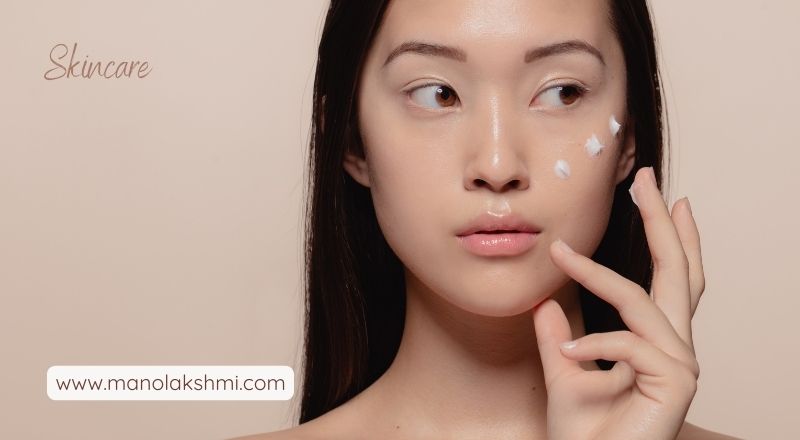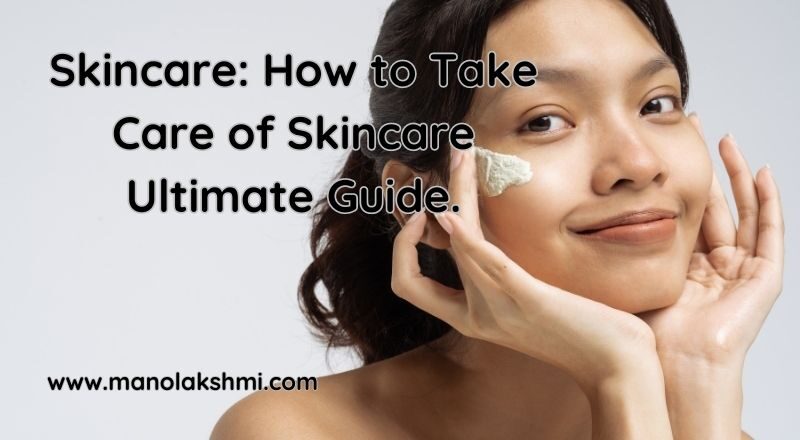What are pores and skincare?
Skin care refers to the methods and products used to maintain healthy skin. It’s a vital part of unique hygiene and can help avert and treat various skin diseases such as acne, dryness, and ruffles. Skin care involves a combination of cleansing, moisturizing, and protecting the skin from environmental damage. Some popular skin care products include cleansers, toners, serums, moisturizers, and sunscreens. Good skin care can help improve the overall appearance and health of your skin, giving you a radiant, youthful complexion.
Taking care of your skin may seem like a daunting task, but with the right steps, it can be an enjoyable and rewarding experience. Here are some tips to help you take good care of your skincare:
Know your skin type:
Before you invest in any skincare products, it’s essential to know your skin type. Whether you have oily, dry, or combination skin, different products work best for different skin types.
Once you have determined your skin type, you can begin to look for specific ingredients that will benefit your skin. Here are some tips for choosing the right products based on your skin type:

Oily skin:
Look for outcomes that are oil-free and non-comedogenic.
Ingredients like salicylic acid and benzoyl peroxide help control oil production.
Avoid heavy creams and opt for light moisturizers.
Dry skin:
Look for products that are hydrating and hydrating.
Ingredients such as hyaluronic acid and glycerin can help retain moisture.
Avoid products containing alcohol as they can dry out.
Combination skin:
Watch for effects that are gentle and level.
Ingredients like niacinamide and tea tree oil can help regulate oil production without drying out the skin.
Use a lightweight moisturizer in areas that tend to be oily, and a richer moisturizer in areas that tend to be dry.
Cleanse regularly: Skincare
Cleansing your skin regularly is essential as it helps remove dirt, oil, and impurities that can clog pores and cause breakouts. Bring in sure you use a gentle purifier that is eligible for your skin type.
Adding to the importance of cleansing your skin, here are some additional benefits of a good cleansing routine:
Helps to maintain the skin’s natural pH balance, which can be disrupted by environmental factors and harsh skincare products.
Prepares your skin for better absorption of other skincare products, such as moisturizers and serums.
Can improve skin texture and tone by removing dead cells and promoting cell renewal.
May help reduce the formation of fine lines and wrinkles by keeping skin hydrated and plumped.
When choosing a cleanser, be sure to consider your skin type and any specific concerns you may have. For example, if you have oily skin, look for a cleanser that contains salicylic acid to help control oil production. On the other hand, if you have dry or sensitive skin, opt for a gentle, fragrance-free cleanser that won’t strip your skin of its natural oils.
Moisturize daily: Skincare
Moisturizing your skin is essential as it helps to keep it hydrated and healthy. Choose a moisturizer that is suitable for your skin type and apply it every day after cleansing.
In addition to keeping your skin hydrated and healthy, moisturizing also has many other benefits.
Moisturizing can help to prevent premature aging by reducing the appearance of fine lines and wrinkles.
Applying moisturizer after cleansing can also help to soothe and calm any irritation or redness.
If you have oily skin, look for a lightweight, oil-free moisturizer to avoid clogging pores.
On the other hand, if you have dry skin, consider using a richer, more emollient moisturizer to help restore moisture to your skin.
Don’t forget to apply moisturizer to your neck and chest as well, as these areas are often exposed to the sun and can show signs of aging.
Protect your skin from the sun:
Exposure to the sun’s harmful ultraviolet rays can damage the skin, leading to premature aging, sunspots, and even skin cancer. Make sure you use sunscreen with at least SPF 30 every day, even on cloudy days.
Here are some tips to protect your skin from the harmful rays of the sun:
Wear protective clothing, such as long-sleeved shirts and wide-brimmed hats, to shield your skin from direct exposure.
Apply sunscreen with a high SPF value (30 or above) on all exposed areas of your skin, including your face, neck, and ears. Reapply every two hours.
Avoid being outside during peak sun hours, typically from 10 am to 4 pm, when the sun’s rays are strongest.
Seek color on every occasion possible, mainly at some point in the top solar hours.
Keep in mind that even on cloudy days, up to 80% of the sun’s UV rays can still penetrate your skin, so it’s important to protect your skin regardless of the weather.
Eat a healthful diet: Skincare
What you consume also can have an effect on your skin’s health. Eating a balanced diet rich in fruits, vegetables, and healthy fats can help to improve your skin’s appearance.
Here are some additional points to consider in relation to how diet can affect your skin:
Consuming foods high in antioxidants such as berries, leafy greens, and nuts can help protect your skin from damage caused by free radicals.
Omega-3 fatty acids found in fatty fish like salmon and nuts like walnuts can help reduce inflammation in the body which can lead to healthier-looking skin.
Processed and high-sugar foods can contribute to inflammation and breakouts, so it’s important to limit your intake of these types of foods.
Drinking masses of water also can assist in preserving your pores and skin hydrated and searching fresh. Aim for a minimum of eight glasses a day.
Remember, while diet can certainly play a role in your skin’s health, it’s important to also practice good skincare habits such as using sunscreen, cleansing regularly, and moisturizing to keep your skin looking its best.
By following these tips, you can take good care of your skincare and achieve healthy, glowing skin.
Read more: Coconut water: Best several health Benefits for you
Best skincare products:
Taking care of your skin is important and Here are some factors to consider when choosing the best skin care products for you:
Skin type: Determine if you have oily, dry, combination, or sensitive skin to find products that cater to your specific needs.
Ingredients: Look for products that contain ingredients that address your skin concerns, such as hyaluronic acid for hydration or salicylic acid for acne-prone skin.
Brand reputation: Research the brand and read reviews to ensure that you are investing in a reputable and trustworthy company.
Price: Good skincare doesn’t always have to come with a high price tag. Look for products that fit within your budget without compromising quality.
Remember, consistency is key when it comes to seeing results with your skincare routine. Find products that work best for you and stick to a routine that you can maintain.
